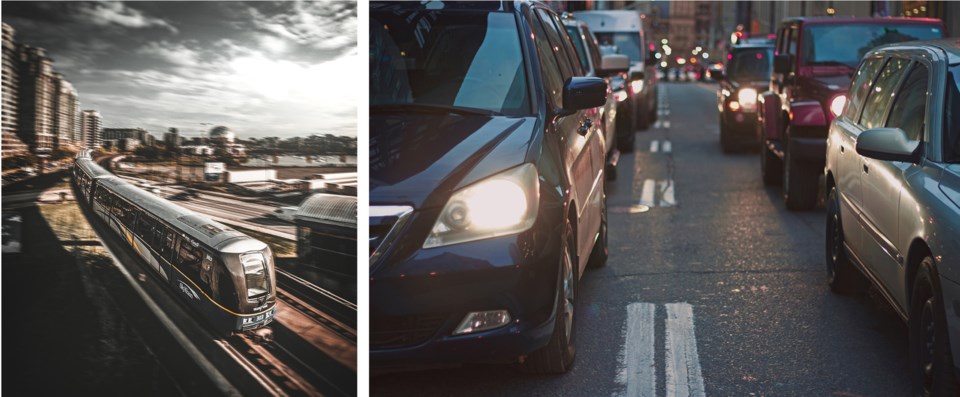Would you pay more to take your private vehicle to work in rush hour to avoid taking the bus?
If both take the same amount of time – what with transit transfers and traffic delays – but the car provides door-to-door service, is it worth paying a few extra dollars for a congestion charge?
On the other hand, would paying more for a car get you on a bus or SkyTrain, which are better for the environment and move many more people per kilometre of road?
Those questions may be what a new study into mobility pricing come down to over the next several months.
So far, it appears that there are two camps: one group that says increasing density and development are causing gridlock problems and should be stopped; another that argues in favour of placing more costs on motorists to reduce demand for roads.
But the newly appointed commission will be looking beyond the car to understand how we move around the region and, with bridge tolls now removed and fuel tax revenues dropping, is poised to take a broad approach to financing transportation.
Fairness will be a key issue because it’s important that everyone contribute to the costs of transportation and recognizes that roads aren’t free – drivers are heavily subsidized.
For those concerned about paying more to drive to work, it’s important to let the commission know that mobility pricing shouldn’t be a tax on employment. People need to get to their jobs and school, and transit isn’t always an efficient option.
Yes, there should be some efforts at demand management to reduce congestion, which means higher costs to drive, particularly at rush hour. But it’s important the commission look at the bigger picture.
There should be assurances that the additional charges will ensure people who switch to transit and SkyTrain aren’t plagued by delays due to deteriorating infrastructure and lack of rolling stock (especially since transit delays seem to get more attention than regular delays on roads and highways caused by routine occurrences such as accidents and construction).
As well, if people are going to pay more to get to work, the pain needs to be shared so that one type of commuter doesn’t bear more than their share of the cost.
Fairness needs to be the operating mission in any new mobility pricing scheme.



